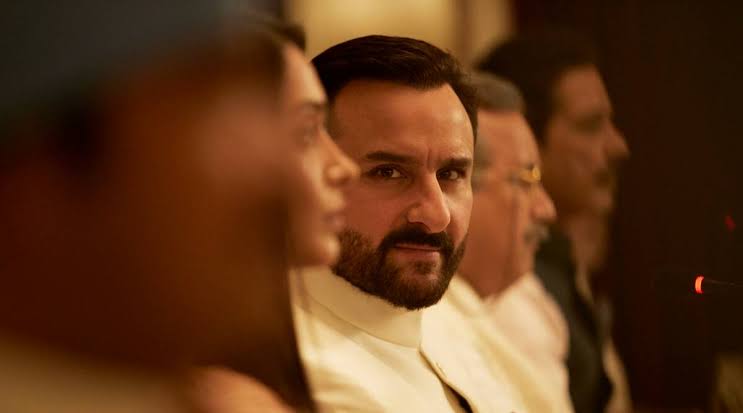
Hani Hilal
Every time I watch an Indian political drama and before my criticism about its shortcomings, gross misrepresentations, and appropriations take place, the Indian far-right would have already got offended and started a campaign against it just because of a dialogue or a scene. This makes the ground of the discussion muddy and nulls any possible scope for discussions beyond the rhetoric of freedom of speech. This peculiar scenario had first grabbed popular attention during the attack on Sanjay Leela Bhansali’s movies and continues to occur with any movie/series that dares to tussle with the Indian Right. Under this situation, where does one place criticisms, beyond the cacophony of the right-wing, against mainstream content like Tandav? How does one call out the distorted narratives about social justice movements as shown in these contents?
Though the series does not have a specific timeline of its world, from the events shown in the series, it can be assumed that it is set after 2016. Like its apparent American counter-part, House of cards, the setting of Tandav is right in the heart of the creamy layer of Politics, where the big players are at. Indian political history is filled with dramatic events and an adaptation of that into the screen with a tinge of cinematic moments does have the potential to create wonders, that’s where Tandav falls short, terribly.
If there’s anyone who should get offended about Tandav, it is the students who were part of the various movements against social injustice(and this government) during the last 6 years. A series which documents(fictionalised or not) the ‘Azadi student movement’ in the country criminally misses everything right about the movement and portrays a terribly distorted version of it.
The showrunners have appropriated everything from JNU to the missing case of Najeeb. The latter they have done to an extent that parallels well with the state narrative regarding Najeeb. In the series, the student movement against the government atrocities is shown to culminate into the creation of a new political party led by Zeeshan Ayyub(whose character reminds us of Kanhaiya and other JNU student leaders). The interesting aspect here is that this new political party resembles many features of a soft-Hindutva ideology. What exactly does this tell us about the politics of the series? How can a student movement which had its roots in anti-caste struggles (The movement with JNU at its forehead started after Rohit Vemula’s suicide) turn into a heroic cinematic moment for soft-Hindutva when converted into the screen? Nowhere in the 9 episode series is shown the pluralistic elements of the movements in campuses and there is absolutely no presence or mention of the Right-wing government or the Hindutva ideology. It is understood that a fictionalised series need not have any resemblance to the actual political happenings outside its world. However, Tandav doesn’t follow the pattern of its western counterparts where the fictionalised events still happen in a world with its actual historical and political self intact. The politics in the series is largely centred around dynasty politics and the tug of war between the factions inside the ruling party. The weak writing of the movie doesn’t involve a political opposition or even a mentioning of any such parties. The only political opposition to the government is raised by the student movements. This could have been read as the lack of political opposition in the actual Indian politics if it wasn’t for the distorted representation of the student politics in the series. To be honest,Tandav plays it safe, whether that indicates a subjugation to the right-wing trolls or lack of creativity, one will never know. The lack of creativity to create tense moments are balanced by ‘revolutionary’ dialogues/scenes which are only good for provoking the right-wing.When the series touch on caste, it only does to demean the personal integrity of the only Dalit leader in the series. The series has many such scenes where the need to be politically correct and depiction of ‘hard grit reality’ of the subaltern, clash and becomes something grotesque and offensive. In these scenes, Tandav has the usual problem with any other Indian content telling the story about the subaltern, that is it doesn’t move away from the lens of the privileged, and as always it is made to suit the satisfaction of its urban elite audience.
The makers of this series have diluted the political discourse around the student’s movement and such a dilution and distortion should be of great concern. Especially, amidst a political atmosphere where the series is being trolled and even threatened with action by BJP leaders and their frenzy mob. This situation thereby contains the danger of this show to be hailed as anti-government and anti-right while all it is, is a poorly written content suiting the narratives of the government and their ideology. The timing of these protests and social media frenzy around this series should also be thought of as this could also be a desperate attempt to divert attention from the ongoing farmer’s protest and anti-government sentiments. The muddying of waters is a technique that’s known to benefit the far-right, especially during the age of social media.
Even on it’s making side, the show doesn’t hold together and has to be saved by the gracious performance of its lead actors.
Another amazon original, Paatal Lok, has done a much better job at that. At least it has some relevance beyond being the butthurt of the far-right.
Hani Hilal is a student of MA English at Delhi University.



